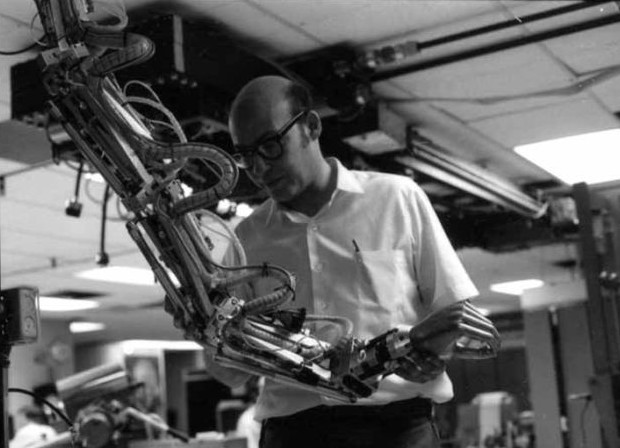In a Medium piece, Gerald Huff answers the points made by writer Walter Isaacson and roboticist Pippa Malmgren during a recent London debate, in which they argued against the likelihood of large-scale technological unemployment. Isaacson touting work created by the so-called Sharing Economy, contingent jobs which squeeze laborers, was either his least-researched response or most disingenuous one.
From Huff:
What is different about the technologies emerging now from academia and tech companies large and small is the extent to which they can substitute for or eliminate jobs that previously only humans could do. Over the course of thousands of years, human brawn was replaced by animal power, then wind and water power, then steam, internal combustion and electric motors. But the human brain and human hands — with their capabilities to perceive, move in and manipulate unstructured environments, process information, make decisions, and communicate with other people — had no substitute. The technologies emerging today — artificial intelligence fed by big data and the internet of things and robotics made practical by cheap sensors and massive processing power — change the equation. Many of the tasks that simply had to be done by humans will in the coming decades fall within the capabilities of these emerging technologies.
When Isaacson says “it always has, and I submit always will produce more jobs, because it produces…more things that we can make and buy” he is falling into the Labor Content Fallacy. Without repeating the entire argument in the linked article, there is no law of economics that says a product or service must require human labor. The simplest example is a digital download of a song or game, which has essentially zero marginal labor content. In the coming decades, for the first time in history, we will be able to “make and buy” a huge variety of goods and services without the need to employ people. The historical correlation between more human jobs due to increased demand for goods and services from a rising population will be broken.•

